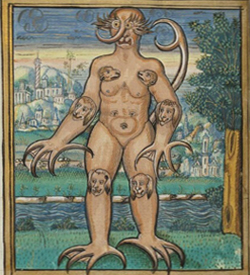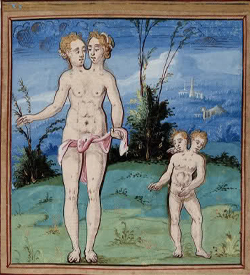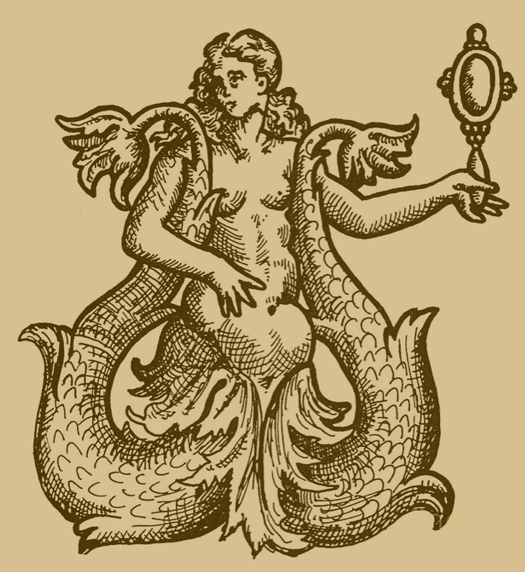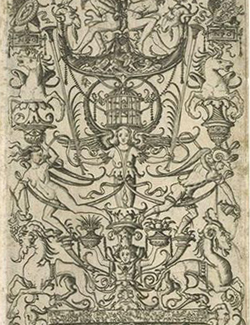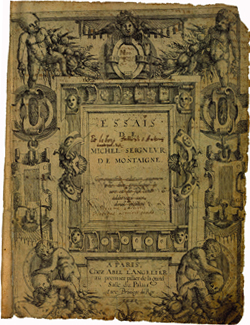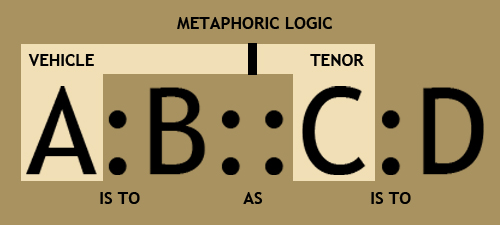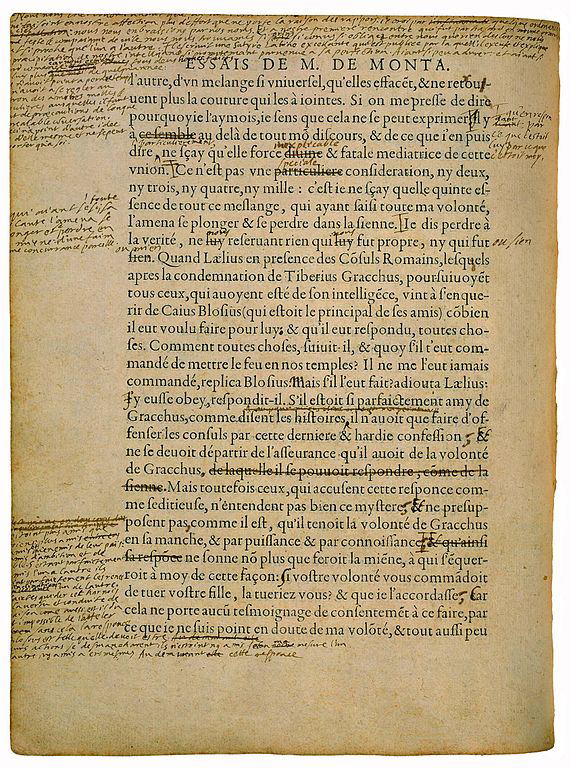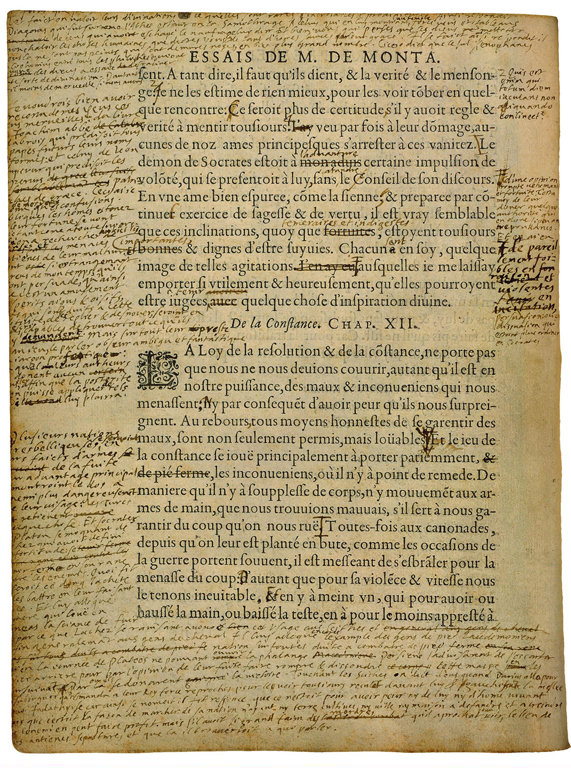Monster Essay
On Montaigne, Metaphor, and the Thatness of the Essay
|
The greatest thing by far is to be a master of metaphor. It is the one thing that cannot be learned from others; it is also a sign of genius, since a good metaphor implies an eye for resemblance.
— Aristotle, Poetics (c. 322 BCE)
Details from the Title Page of Essais (Paris, 1588, Villey edition)
Michel Eyquem de Montaigne
A metaphor is a brief similitude contracted into a single word; this word— being put in the place of another word, as if it were in its own place—conveys delight, but only when the resemblance is acknowledged; if there is no resemblance, it is condemned.
— Cicero, Of Oratory (55 BCE)
From Histoires prodigieuses les plus mémorables qui ayent esté observées, depuis la Nativité de Iesus Christ, iusques à nostre
siècle:
Extraites de plusieurs fameux autheurs, Grecz, & Latins, sacrez & profanes Pierre Boaistuau (Paris, 1560)
Metaphor is for most people a device of the poetic imagination and the rhetorical flourish - a matter of extraordinary rather than ordinary language. Moreover, metaphor is typically viewed as characteristic of language alone, a matter of words rather than thought or action. For this reason, most people think they can get along perfectly well without metaphor. We have found, on the contrary, that metaphor is pervasive in everyday life, not just in language but in thought and action. Our ordinary conceptual system, in terms of which we both think and act, is fundamentally metaphorical in nature. — George Lakoff and Mark Johnson, Metaphors We Live By (1980)
From Balet comique de la Royne, faict aux nopces de Monsieur le Duc de Joyeuse & madamoyselle de Vaudemont sa sœur. Par Baltasar de Beaujoyeulx, valet de chambre du Roy, & de la Royne sa mere
Jacques Patin (Paris, 1581)
[A] discourse which makes use of metaphor has the extraordinary power of redescribing reality. This is, I believe, the referential function of metaphorical statement .... If this analysis is sound, we should have to say that metaphor not only shatters the previous structures of our language, but also the previous structures of what we call reality. When we ask whether metaphorical language reaches reality, we presuppose that we already know what reality is. But if we assume that metaphor redescribes reality, we must then assume that this reality as redescribed is itself novel reality .... With metaphor we experience the metamorphosis of both language and reality."
— Paul Ricoeur, "Creativity in Language: Word, Polysemy, Metaphor" (1973)
Details from pages 69 and 70 of Book One of the Essais (Paris, 1588, Villey edition)
Michel Eyquem de Montaigne
Considering the proceeding of a Painters worke I have; a desire hath possessed me to imitate him: He maketh choice of the most convenient place and middle of every wall, there to place a picture, laboured with all his skill and sufficiencie; and all voyde places about it, he filleth-up with antike Bostage or Crotesko [grotesque] works; which are fantastical pictures, having no grace, but in the varietie and strangenes of them. And what are these my compositions in truth, other than antique workes and monstrous bodies, patched and hurled up together of divers members, without any certain or well ordered figure, having neither order, dependencie, or proportion, but casual and framed by chaunce? — Montaigne, "Of Friendship" (trans. John Florio, 1603)
While many expository analogues, as conventional opinion proposes, are casual and illustrative, some few seem more recurrent and, not illustrative, but constitutive: they yield the ground plan and essential structural elements of a literary theory, or of any theory . . . . There is a great deal of wisdom in the popular locution for "What is its nature?" namely: "What is it like?" We tend to describe the nature of something in similes and metaphors, and the vehicles of these recurrent figures, when analyzed, often turn out to be an implicit analogue through which we are viewing the object we describe.
— M.H. Abrams, The Mirror and the Lamp (1953)
Montaigne's marginalia on the Second Edition of the Essais (Paris, 1588, Bordeaux Copy)
for the Third Edition
Metaphor is a device for seeing something in terms of something else. It brings out the thisness of a that, or the thatness of a this.
— Kenneth Burke, A Grammar of Motives (1945)
|


